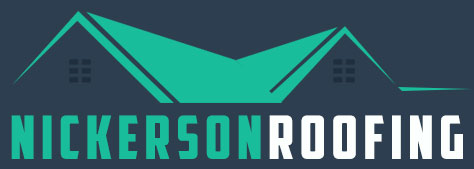A home’s roof in the North Lake Tahoe, CA region is exposed to rain, wind and snow throughout the year. Heavy rain can have an effect on a roof, and depending on the type of roof, the effects can vary. Thankfully, rain itself is unlikely to cause a roof to collapse. Rather, increased weight to the roof from snow, an aging roof that was not properly repaired, maintained or needed replacement as well as dry rot and structural damage due to water intrusion from a recurring roof leak are most likely to result in a roof collapse. However, with improper preparation and maintenance the results from a heavy rainstorm can still lead to costly repairs of roof leaks or even a premature roof replacement. Nickerson Roofing would like to share the various effects rain can have on your home’s roof and why inspection and maintenance is beneficial.
Do Asphalt Shingles Absorb Rain Water?
Asphalt roofs are more prone to wind damage. High wind speed can loosen and remove shingle as they weaken over time. Rain most often effects the asphalt’s surface. Asphalt shingles are covered with a sandy material often referred to as granules. During frequent or heavy rains, the granules can become weaker and eventually they begin to wear off. As the granule layer thins, the roof protection becomes questionable. Once the granules are too thin the moisture can seep into the inner layers of the roof. The water can cause mold and moisture damage. For homeowners with asphalt rooftops it is important that the shingles are maintained often and are replaced as needed.
Are Metal Roofs Good for Rain?
Overall, metal roofs stand up to rain and snow really well. Metal is very durable and can better withstand these elements than shingle roofs. Even when the winds start blowing strongly, metal roofs can withstand wind gusts up to 140 mph. For those concerned that metal roofs will be really loud during rain, you can rest assured that metal roofs in fact, are not any noisier in the rain than a traditional asphalt roof. This is because your typical metal roof is no longer directly installed over your roofing surface like it traditionally was such as in a barn for example. When a metal roof is installed, it comes with strong sheathing that goes between the metal roof and your existing roofing surface. Because of this, metal roofs can effectively reduce noises from rain, hail, windblown debris, and other extreme weather conditions much better than other roofing materials.
How Does a Low Slope or Flat Roof Deal with Rain?
Low slope and flat roofs are often prone to more moisture and mold damage than other roof types. Flat and even low slope roofs can develop low spots on the roof where water can puddle. Standing water on a roof is always bad news. The longer water stands on a roof the easier it is for the water to create an opening where the moisture can leak into the inner surfaces of the roof. Low sloped roof gutter systems also are prone to clogging more frequently. If the running water can’t flow out and away from the roof then leaks and other water damage will begin to occur. Low sloped roof gutters must be maintained and kept cleaned. Flat roofs also have a drainage system that also requires regular cleaning. If a flat roof has a low spot, the roof is often resurfaced and leveled to prevent standing water.
Roof Repair, Replacement & More in Truckee, Mystic, Tahoe City, Kings Beach & The North Lake Tahoe Basin of California
To prevent major water damage by rain this summer, make sure to have your roof inspected and repaired. It is recommended to have your home roof inspected every 2 to 3 years or as signs of needed repair emerge. Nickerson Roofing provides roofing installation, repair and inspection services. We can help ensure your roof’s health. For quality roofing services and more, contact Nickerson Roofing today.




